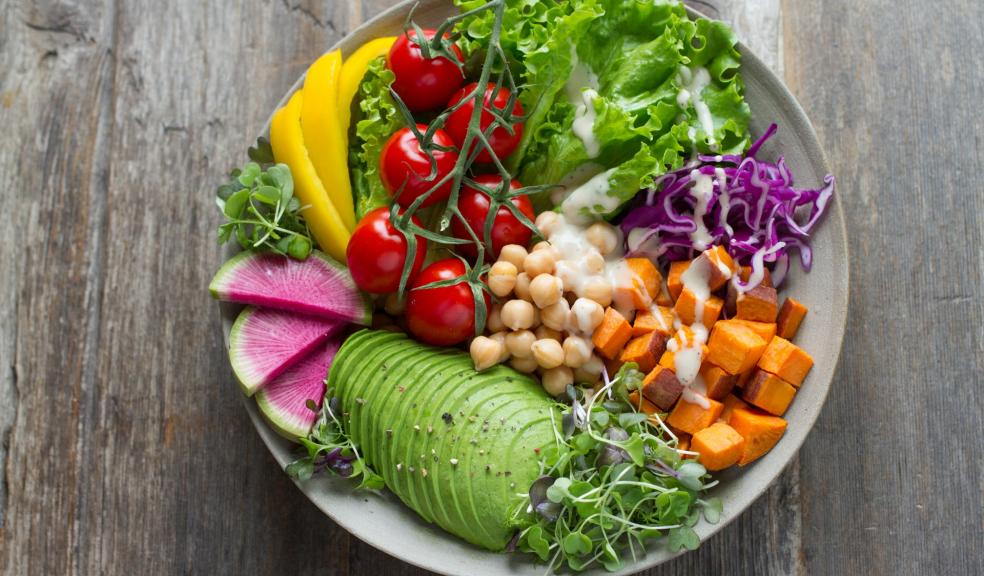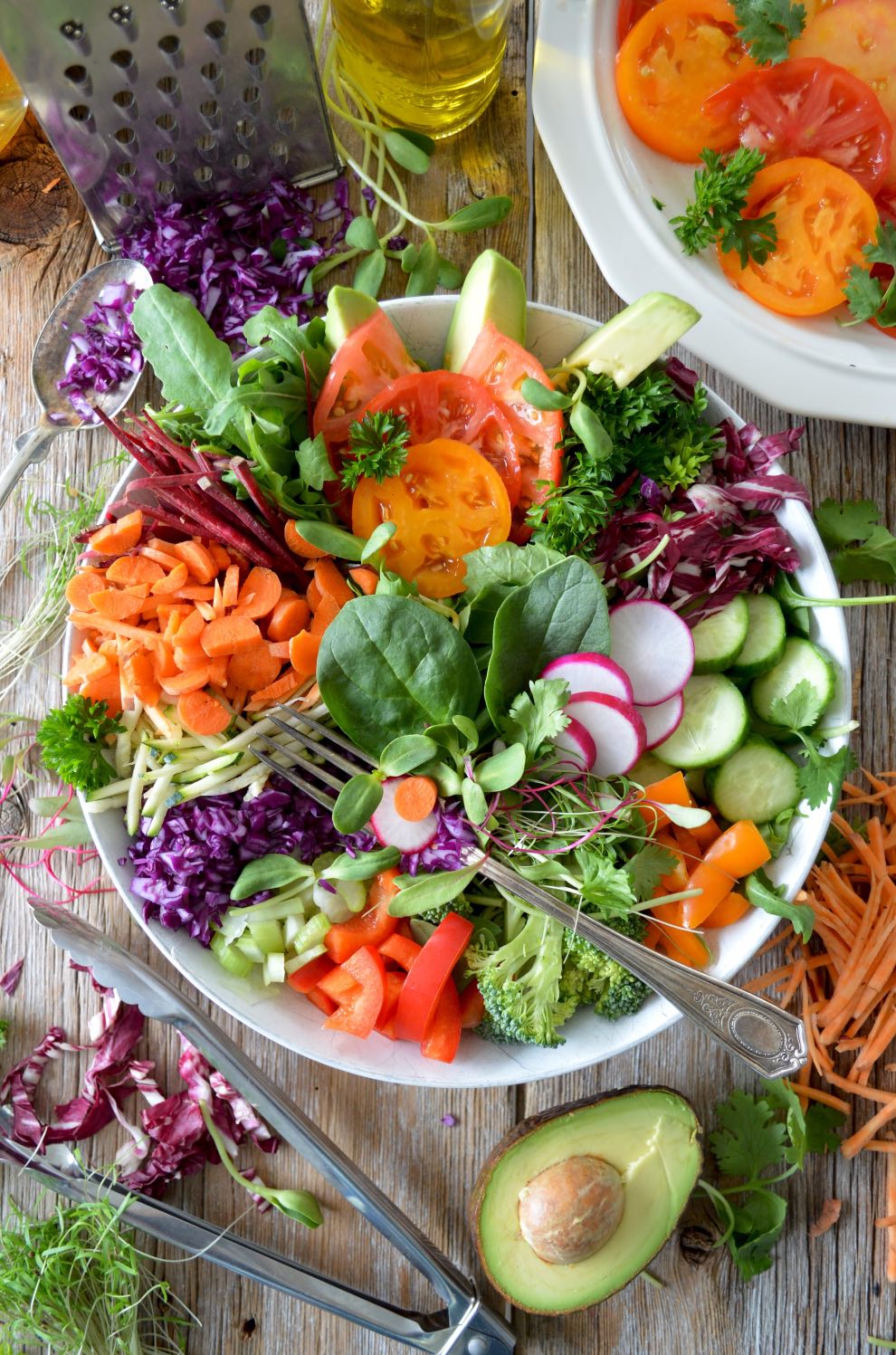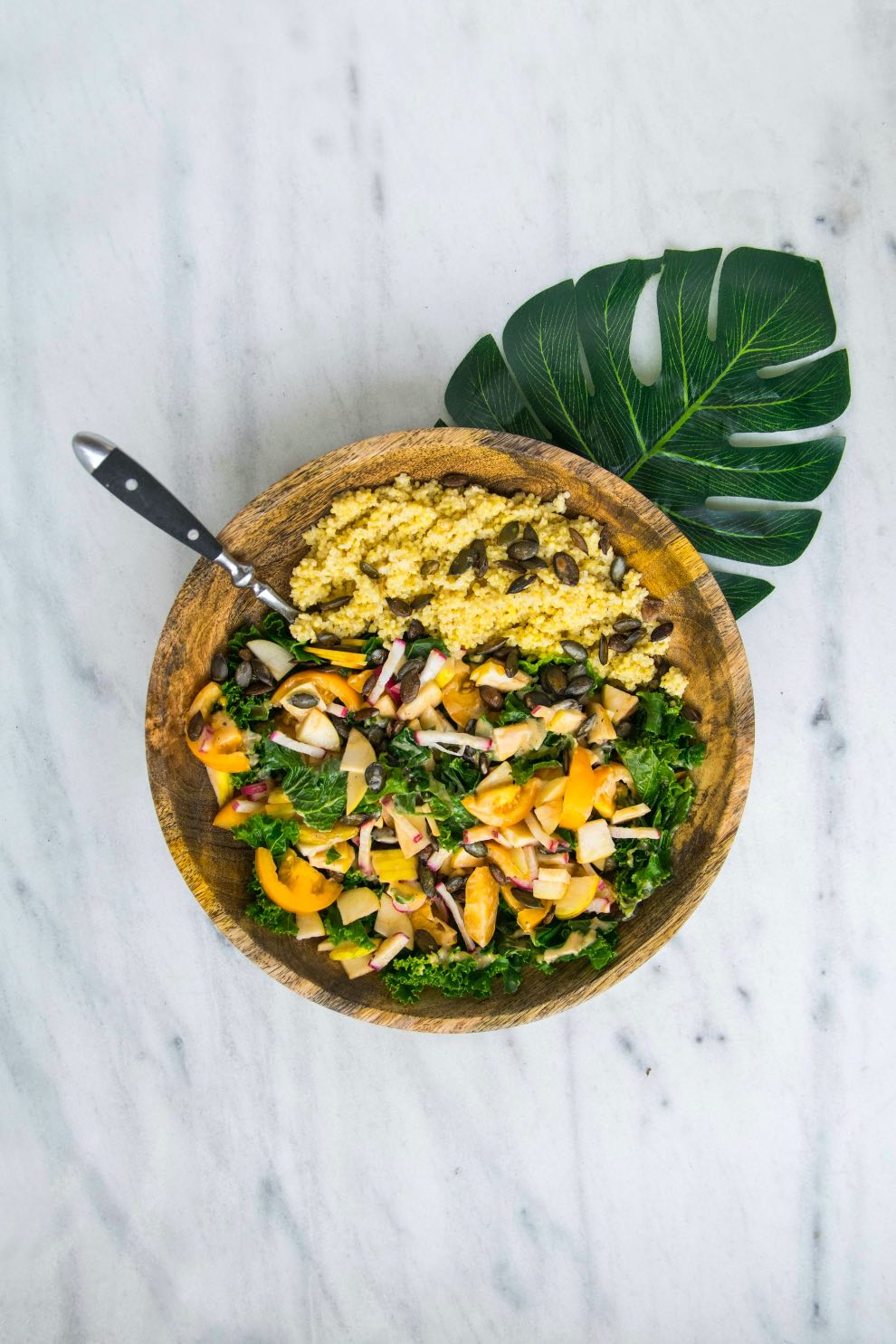
Wondering what actually is a vegan diet? Know the Basics
In 1944 the term “Vegan” was first coined by Donald Watson, a founding member of the Vegan Society. According to him, “Vegan” describes the philosophy that animals should not be exploited and hurt for food or other. A vegan diet in simple terms means “your food contains no animal ingredients”. As claimed by vegan lovers, a well-planned vegetarian diet is the healthiest way to meet your nutritional needs. Now, a Vegan diet generally includes a combination of
- Vegetables
- Legumes such as peas, beans, and lentils.
- Fruits and berries
- Rice, wheat, and other grains
- Beans, tofu
- Soy milk and nut milks
- Nuts and Seeds
- Vegetable oils
NOT ALL PLANT-BASED DIET ARE VEGAN DIET
What comes to mind when you hear a plant-based diet? Typically, we think about a diet that doesn't include meat, poultry, or fish. But plant-based diets vary in what foods they include and exclude. Some examples:
- Lacto-vegetarian diets: exclude meat, fish, poultry, and eggs, as well as foods that contain them. Dairy products, such as milk, cheese, yogurt, and butter, are included.
- Ovo-vegetarian diets: exclude meat, poultry, seafood, and dairy products, but allow eggs.
- Lacto-Ovo vegetarian diets: exclude meat, fish, and poultry, but allow dairy products and eggs.
- Pescatarian diets: exclude meat and poultry, dairy, and eggs, but allow fish.
- Vegan diets: exclude meat, poultry, fish, eggs, and dairy products — and foods that contain these products.
So, a vegan is someone who practices a plant diet, does not eat animal-derived foods such as meats, milk, and dairy. Along with diet many vegans also boycott clothing and other products that involve animal exploitation, such as leather and fur. Vegan supplements are available for fitness lovers and there are fat burners especially for women. But it is important to take these supplements with proper research. For instance, Vegan Liftz’s review on Leanbean extensively discusses this fat burner for women. The recent rise of veganism can be attributed to mainly three areas, such as health benefits, environmental conservations, and love for animals.

HOW DOES VEGAN DIET WORK?
Are you curious about a vegan diet? Or are you new to veganism? Much of the misinformation spread about the vegan diet comes from a lack of research, misinterpretation of research, or incomplete understanding of human physiology. Vegan myths also stem from people either wanting to make vegan diets look harmful or ideal. Well, let us try to see how this diet works.
If you have been online you must have come across a dozen sites dedicated to the vegan diet. How does this diet improve our overall health? Sometimes, in the promotion of a vegan lifestyle, people may be tempted to claim there are no concerns regarding proper vegan nutrition. While it is true that there are benefits with vegan diets like weight loss, healthy heart, reduce the risk of chronic diseases, regulates your blood pressure and sugar levels. The key to unlocking all such blessings is a “well planned vegan diet”. This implies the need for a vegan diet to be balanced and adequately researched to ensure all micronutrient needs are being met. Studies show well-planned diets can reduce stress and anxiety, including a vegan diet. help Certain nutrients need to be addressed when talking about vegan nutrition. Certain vitamins and minerals which are primarily found in meat diet:
1. Vitamin B-12
2. Vitamin D
3. Omega 3-fatty acids
4. Iodine
5. Iron
6. Zinc
There are alternatives for such vitamins and minerals you can substitute with fortified foods or transitioning to the vegan sources. Also, supplements can support your need for micronutrients.
PLANNING VEGAN DIET MEALS
Plan at least 5 small meals in a day. According to the vegan society here are some tips for healthy vegan diets:
- Make sure that your diet contains a variety of fruit and vegetables – eat a rainbow!
- Eat nuts and seeds daily, especially those rich in omega-3 fats.
- Ensure that your diet contains a reliable source of vitamin B12 (either fortified foods or a supplement)
- Drink about six to eight glasses of fluid a day.
- Check out information about vitamins B12 and D, calcium, iron, zinc, selenium, and omega-3 fats to make sure that you are getting enough.

AIM AND GOALS OF A VEGAN DIET
Pursuing a vegan diet can be for different reasons: for health benefits, for animal welfare, for environmental concerns and natural resources, etc. As a whole, the vegan society looks for more than just individual health concerns and benefits. Every day more and more people are deciding to practice a vegan diet.
- A vegan diet tends to be higher in vitamins, minerals, phytochemicals, fibre, vitamins B1, C, and E, folic acid, magnesium, and iron while also being low on cholesterol and saturated fats.
- Vegan diets can be healthy for anyone of any age, including children, pregnant and lactating women, and elderly. There are a wide variety of resources available for learning about why more and more people are deciding to go on a vegan diet.
We encourage you to explore and take up a well-balanced vegan diet knowing the many health benefits that it brings.













